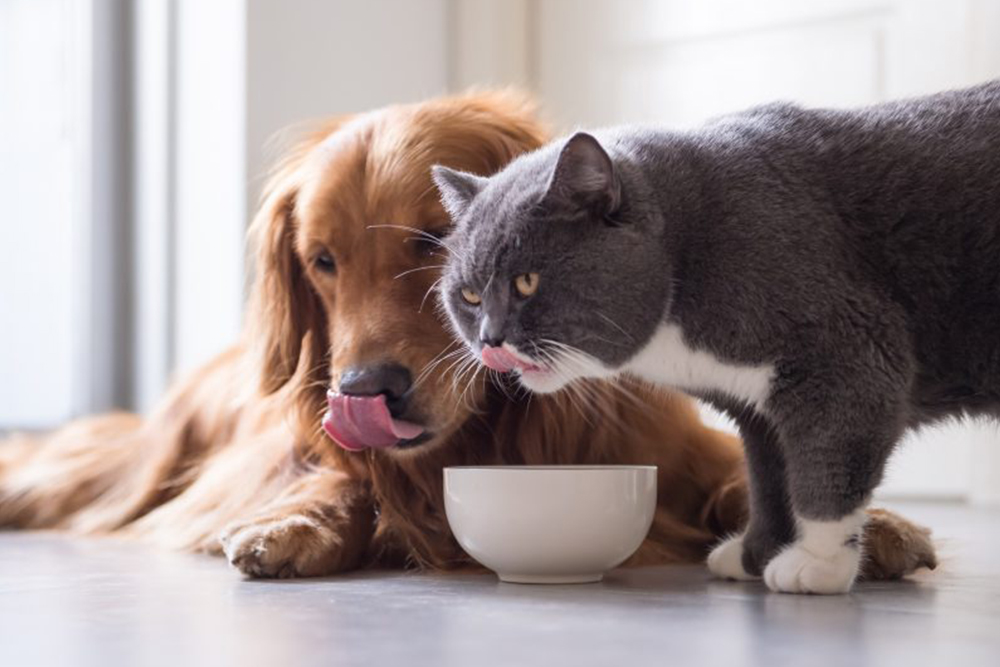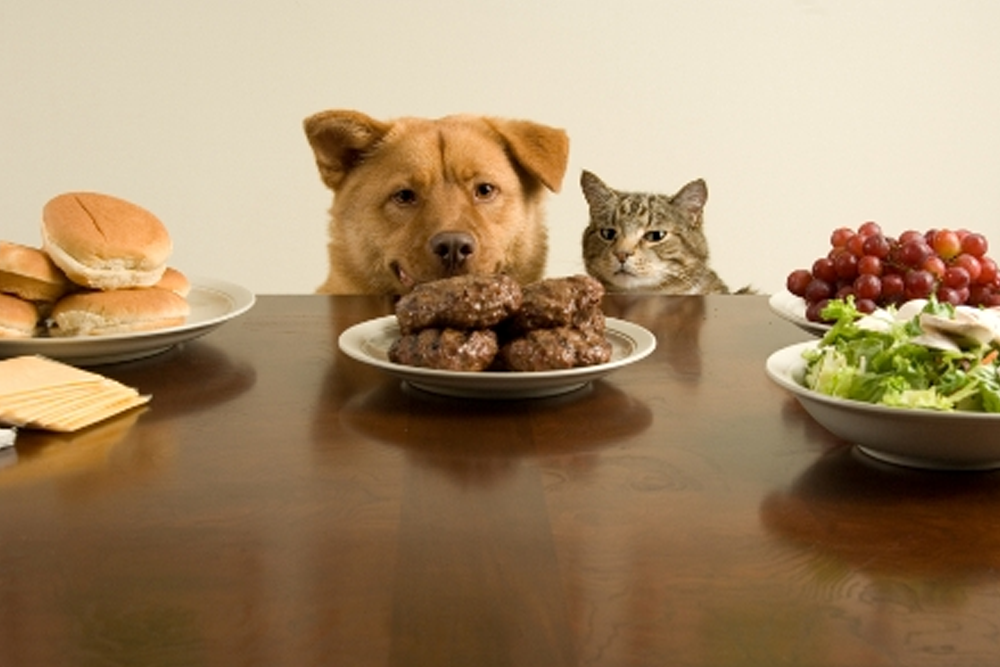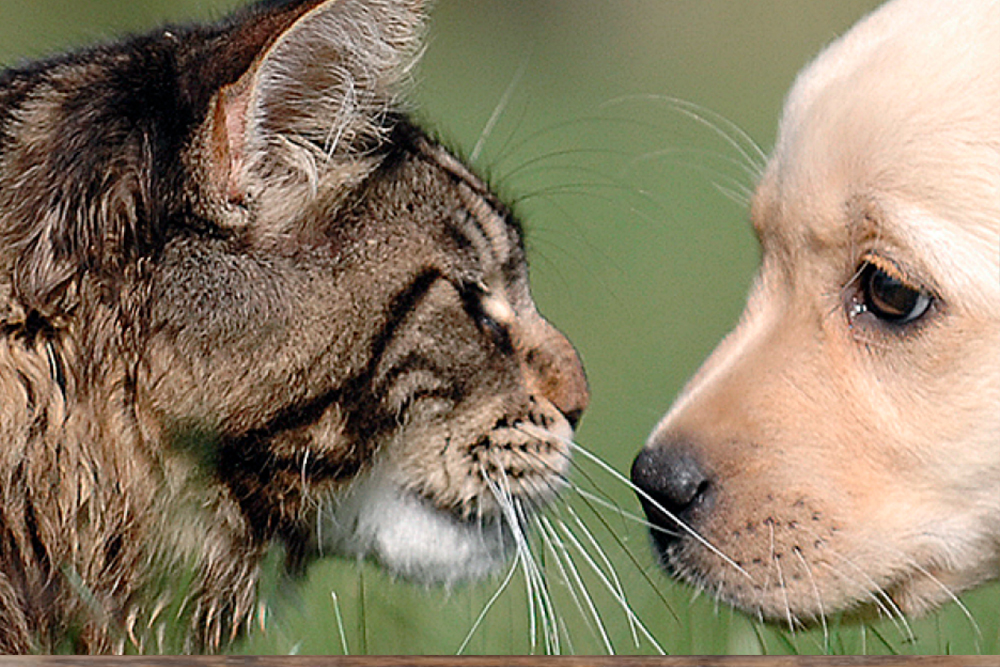A guide to forbidden and allowed foods for pets , check it out

Pets are part of our family and we often want to share the foods we like with them. However, not all foods are suitable for animals, as some can be toxic or harmful to their health. Therefore, it is important to know which foods are prohibited and allowed for pets, especially during the holiday season, when there are many temptations on the table.
Forbidden pet foods, some foods can cause from digestive problems to severe poisoning in pets. Therefore, they must be avoided at all costs. See some examples:
1- Chocolate:
contains a substance called theobromine, which is toxic to dogs and cats. It can cause vomiting, diarrhea, agitation, seizures and even death. The darker the chocolate, the higher the concentration of theobromine and the greater the risk.
Related articles
1- Choosing the Best Pets Food: Tips for Finding the Ideal Diet
2- 5 Tips Importance of Balanced Nutrition for Pets
3- Natural foods that can be included in your pet’s
4- The benefits of a natural diet for dogs and cats
2- Grapes and raisins:
can cause acute kidney failure in dogs and cats. Symptoms include lack of appetite, vomiting, diarrhea, lethargy, and increased thirst and urination.
3- Onion:
contains a substance called allicin, which can cause hemolytic anemia in dogs and cats. This means that red blood cells are destroyed and the animal becomes weak and pale.
Garlic can also have this effect in high doses.
4- Macadamia nuts:
can cause muscle weakness, tremors, abdominal pain and increased body temperature in dogs. It is not yet known which substance is responsible for this toxicity.
5- Avocado:
contains a toxin called persin, which can affect the heart and lungs of dogs and cats. In addition, avocado pits can cause intestinal obstruction if ingested.
6- Coffee:
contains caffeine, which is a central nervous system stimulant in animals. It can cause tachycardia, cardiac arrhythmias, high blood pressure, nervousness, tremors and seizures.
Tea and energy drinks also have caffeine and should be avoided.
7- Alcohol:
can cause depression of the central nervous system of animals, leading to symptoms such as motor incoordination, drowsiness, vomiting, diarrhea and coma.
In severe cases, there may be respiratory and cardiac arrest.
Yeast or yeast: used to make bread and cakes, it can ferment in the stomach of animals and produce gases that cause abdominal distension and pain.
In addition, it can release alcohol into the blood of animals and cause alcoholic intoxication.
Food allowed for pets
Although there are many prohibited foods for pets, there are also some that can be offered in moderation and benefits for the health of animals. See some examples:
1- Fruits:
can be a source of vitamins, minerals and fibers for pets. Some recommended fruits are apple (seedless), banana
and melon (peeled and seedless). These fruits help hydrate the pet and prevent urinary infections. Other fruits that dogs can eat are: apple (seedless), pear (pitted), strawberry, kiwi, orange (peeled and seedless) and mango (pitted)123. These fruits are sources of vitamins C, A, E and complex B, in addition to fiber, antioxidants and minerals. They contribute to the health of the skin, vision, immune system and digestive tract of pets.
2- Vegetables:
can be a source of vitamins, minerals and fibers for pets. Some vegetables that dogs can eat are: carrots, pumpkin, sweet potatoes, chayote and green beans12. These vegetables are rich in beta-carotene, vitamin A, vitamin K, calcium, iron and potassium. They help strengthen the bones, teeth, vision and immune system of pets.
3- Greens:
can be a source of vitamins, minerals and fibers for pets. Some vegetables that dogs can eat are: lettuce, cabbage, spinach and broccoli12. These greens are rich in vitamin C, vitamin K, folic acid, magnesium and iron. They help prevent anemia, improve blood circulation and regulate the intestines of pets.
How to offer natural food to pets
Natural foods can be offered to pets as a complement to their balanced diet or as healthy snacks. However, some recommendations must be followed to ensure the well-being of the animals:
- Consult a veterinarian before introducing any new food to the pet’s diet;
- Always offer natural foods washed, peeled and without seeds or lumps;
- Cut food into small pieces or knead it to avoid choking or blockages;
- Offer natural foods in moderation and vary the options to avoid nausea or excesses;
- Observe if the pet has any allergic reaction or intolerance to natural foods and suspend use if necessary;
- Do not replace the ration or balanced natural food with natural food without professional guidance.
Natural foods can bring many benefits to the health of pets if they are offered properly and safely. Therefore, it is important to know which foods are prohibited and allowed for pets and follow the veterinarian’s guidelines before changing your animal’s diet. This way, you can provide a healthier and happier life for your four-legged friend pet .
Sobre o Autor




0 Comentários